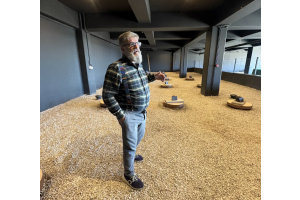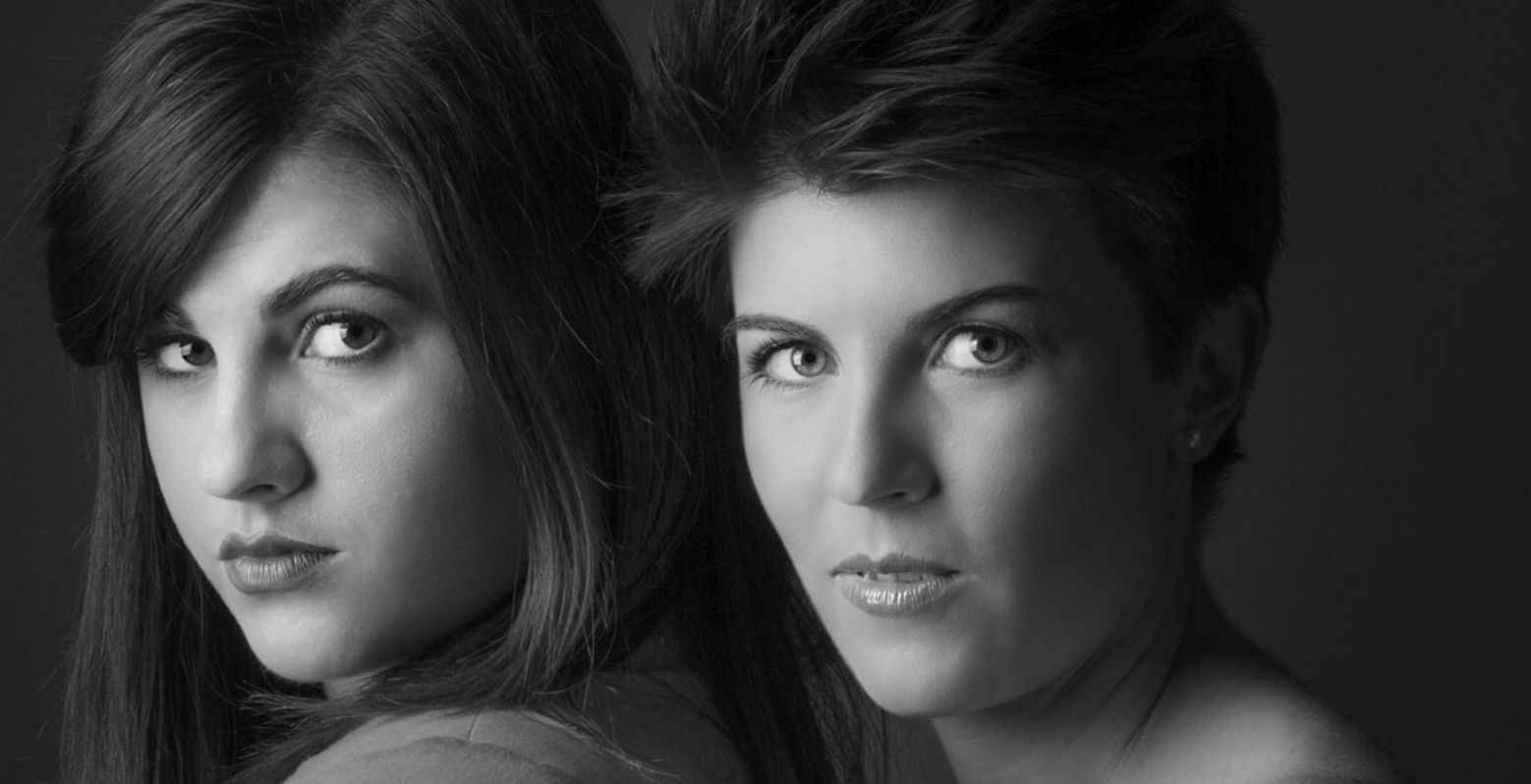
Made on the southeastern shores of Lake Garda in the Veneto region of Northern Italy, Bardolino is a mix of the indigenous grapes Corvina, Rondinella, and Molinara. The terroir is dominated by glacial soils with stony sub-soils composed of mostly limestone. These three main grapes used to produce Bardolino are also used to produce Valpolicella. However the two wines are very different as Bardolino is a lighter, brighter wine, as it generally contains less Corvina which adds body and structure and more Rondinella which is lighter.
The Benazzoli family has been making Bardolino in the Val d’Adige for four generations. Claudia and her sister Giulia took over in 2006.
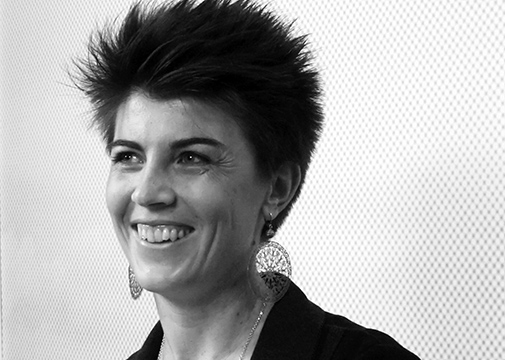
Christopher Barnes: Claudia what is the story behind Benazzoli - you're the fourth generation to be running it?
Claudia Benazzoli: We are the fourth generation, yes. My great-grandfather started with the business, so many, many years ago. Now I am running the estate together with my sister Giulia. We are two women involved in this wine business.
People generally think of wine as quite a masculine business and especially a society like Italy. Has it been a challenge being two women running a wine business?
You have to think about one thing. The word "vino" that means wine in Italian is a male name, but the word vino is surrounded by different female names like "uva", that is grape, or "vendimia," that is harvest. Traditionally the wine is a male concept, but now it's changing. There are many women involved in the wine business, and I think that we can give something different.
Do you feel that you have a different way of looking at things being women winemakers and women business people?
I think that women can, like in the packaging we can give something more like ... We pay more attention in the style, in the packaging, how we promote our wines, how we make it. Yes, we can find some difference.
When you and your sister took over the business, did you change a lot of things or were you focused on maintaining tradition?
I strongly believe in tradition and I strongly believe in what my family did before me. We try to keep everything like my father did, but we are changing small things. Tradition is very, very important. If there are many years of trying different grape varieties, trying different grape blends, we need to follow them and we need to understand what our father, our great-grandfather gave to us.
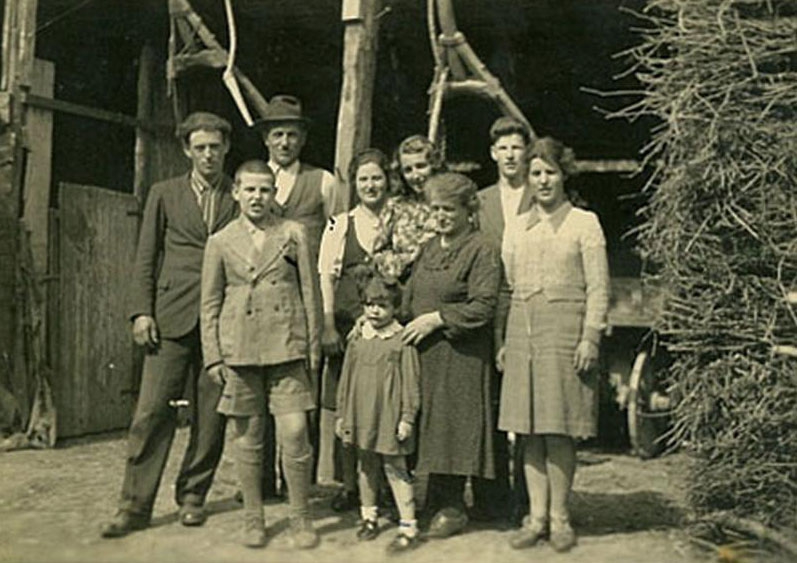 Talk about some of the things you may change. What were some of the things you looked at and said, we love what we're doing, but these are things we think we can do a little bit better?
Talk about some of the things you may change. What were some of the things you looked at and said, we love what we're doing, but these are things we think we can do a little bit better?
The first thing that we changed was the packaging. Normally when you think about an Italian wine, you think about a very classical packaging, very clean. As you can see, we changed everything, so very big label with the big paint on it. The first change was how we promote our product, our wines.
Talk a little bit about the philosophy of winemaking at the estate.
The philosophy of the winemaking is, like I said before, to follow the tradition. All our wines are strongly like the original and traditional wine, like our Bardolino. You have to see that in our wine region we live very close to Lake Garda. Our Bardolino is normally served slightly chilled together with the fish from the lake. Our Bardolino must be very delicate, very fruity, spicy. That was the tradition.
Is there a philosophy that you have with the viticulture as well?
Nothing really different from the tradition. We still use the traditional system that is called "pergola." We are still harvesting by hand. We use also machine, but 60% of all our grape is harvested by hand.
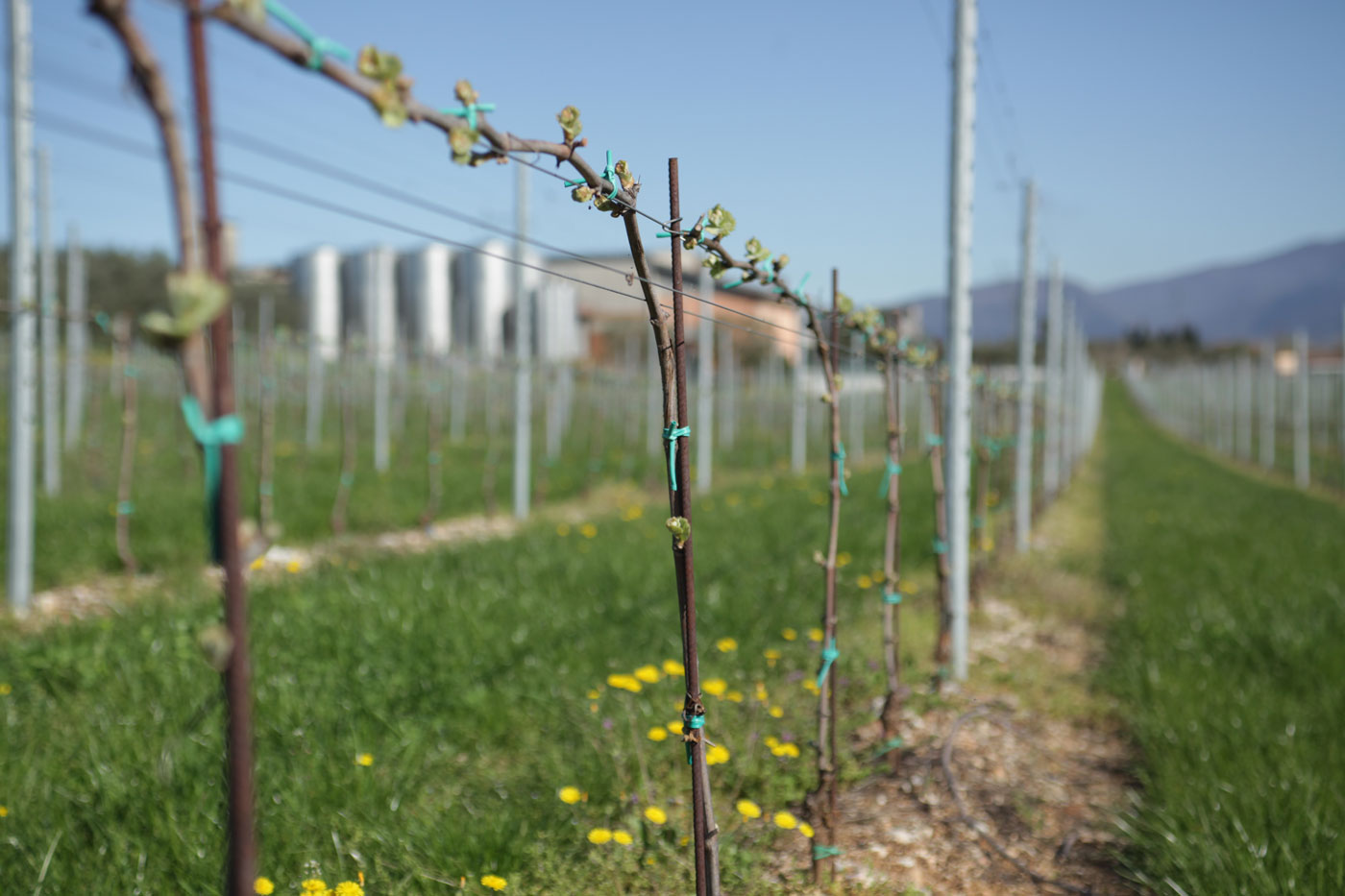
Talk a little bit about the terroir. The lake must have quite a big influence on the grape growing.
Yes, the lake is very, very important because it creates a special micro-climate in our wine region that is perfect for the growth of the vine, but also olive tree and lemon trees and also the soil. The soil is very, very stony, very rocky, and very light. That's what makes the difference between the Bardolino wine region and Valpollica. Valpollicella is very close to us. They grow the same grapes, like Corvina Rondinella, and Molinara, but the soil there creates the difference. The terroir is very important.
Maybe you can talk a little bit about those differences. How is Bardolino different from Valpolicella?
Bardolino, thanks to the soil, is very light and also the rosé version of Bardolino, Chiaretto. It's a wine that is very fresh, very delicate. Valpolicella is completely different. The soil is richer in clay, limestone, so that helps to have stronger wines like an Amarone or Ripasso, the most famous wine from our wine region. Also the altitude. Bardolino is a hilly area and it's flatter than the Amarone and Valpolicella wine regions. Also the altitude creates the difference.
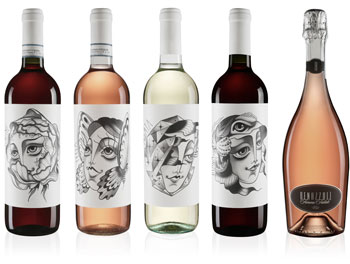 Talk a little bit about the wines that you're making right now.
Talk a little bit about the wines that you're making right now.
We are specialized in Bardolino and Chiaretto.Those are the two main products of our estate. We also make very special Chiaretto Spumante, a sparkling wine. I really like it because the bubbles are very fine, alcohol is not too high. It's fresh, delicate, so it's one of my favorite rosé wines actually. Then since 2013, we are also the producer of an Amarone and Ripasso. We bought the vineyard three years ago and we bottled our first Ripasso at the beginning of this year. Next February we are going to bottle our first Amarone, so I am quite excited about it. It's a small selection. We make about 3,600 bottles per year, of Amarone and Ripasso together. We decided to make that wine only in the best season. For example, we skipped the 2014 vintage because it wasn't the best season. It was raining during all the summers, so we didn't have the best quality for our wines. We are going to produce the 2013 and 2015 and 2016, of course.
For somebody who has never tried Bardolino, how do you describe it to them?
I would like to describe it with my labels. We decided to represent every wine with a different woman and the character of the woman tells the story about the wine. Daphne, our Bardolino, it's like a young woman that would like to grow but doesn't want to, a little bit shy. That's our Bardolino. When you think about the right wine, normally you think about the strong red wine, rich in alcohol, very powerful. That's the opposite of our wines. Bardolino, it's a wine that you have to enjoy together with friends, light, delicate, simple, but that doesn't mean that it's a basic wine. Bardolino is very complex.
You and your sister have a nickname - "Sparkling Sisters." How did that come about?
Yes, Sparkling Sisters because the first year we made our sparkling wine was in 2009 and our production was about 2,000 bottles of the sparkling. We sent a sample to the Mondial du Rosé Competition, one of the most important competitions dedicated to rosé wine. With our four sparkling wines we won the gold medal and we won the only gold medal in Italy. We are very proud of our sparkling wine. That helped to promote our winery when we were at the beginning of our adventure.





